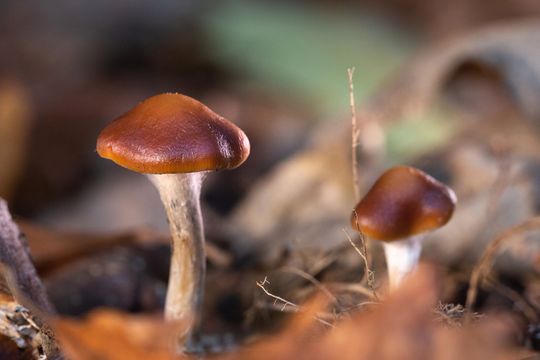Magic mushroom compound increases brain connectivity in people with depression

Psilocybin, the psychedelic compound found in magic mushrooms, helps to “open up” depressed people's brains, even weeks after use, a study has found.
These are the findings of a new analysis of brain scans from close to 60 people receiving treatment for depression, led by Imperial College London's Centre for Psychedelic Research. The team behind the study believes it may have untangled how psilocybin exerts its therapeutic effects on the brain.
Psilocybin is one of a number of psychedelics being explored as a potential therapy for psychiatric disorders. Several studies have trialled a synthesised form of the drug to treat patients with depression and anxiety, with promising results.
Improvements with psilocybin therapy
In the latest study, a team led by Imperial's Centre for Psychedelic Research analysed fMRI scans of participants from these two trials, which included almost 60 participants: an open label trial in treatment-resistant depression – where all participants received psilocybin; and a randomised control trial in more general depression that compared psilocybin with the selective serotonin reuptake inhibitor (SSRI) escitalopram.
All participants also received talking therapies with registered mental health professionals and brain scans were taken before, and then one day or three weeks after participants received psilocybin therapy.
The effect seen with psilocybin is consistent across two studies, related to people getting better, and was not seen with a conventional antidepressant.
Cai
Molecular Bioengineering undergraduate
Both trials found improvements with psilocybin therapy, as measured by improved participant scores on clinical questionnaires. Analysis of the brain scans revealed altered communication or connectivity between brain regions.
More specifically, they found an increase in communication between those brain regions that are more segregated in depressed patients.
These are the findings of a new analysis of brain scans from close to 60 people receiving treatment for depression, led by Imperial College London's Centre for Psychedelic Research. The team behind the study believes it may have untangled how psilocybin exerts its therapeutic effects on the brain.
Psilocybin, the psychedelic compound found in magic mushrooms, helps to “open up” depressed people's brains.
The research was supported by funding from the Alex Mosley Charitable Trust and founding donors of the Imperial Centre for Psychedelic Research. First author Dr Richard Daws, who is now based at King's College London, was supported by the Imperial College London EPSRC Centre London for Doctoral Training (CDT) in Neurotechnology.
Article text (excluding photos or graphics) © Imperial College London.
Photos and graphics subject to third party copyright used with permission or © Imperial College London.
Article people, mentions and related links
Simon Levy
Administration/Non-faculty departments:
- Tel: +44 (0)20 7594 6701
- Email: email@imperial.ac.uk
- Articles by this author
Ryan O'Hare
Faculty of Medicine:
- Tel: +44 (0)20 7594 2410
- Email: r.ohare@imperial.ac.uk
- Articles by this author
Related articles
Latest articles
Get the latest from Imperial
Sign upGet the latest from Imperial
Sign up



